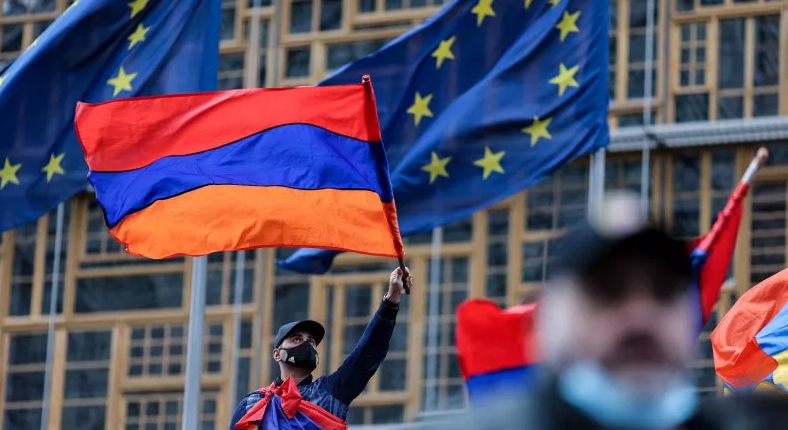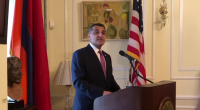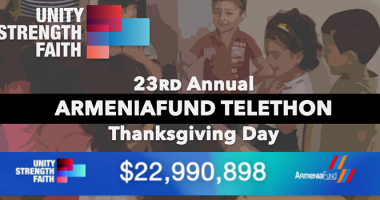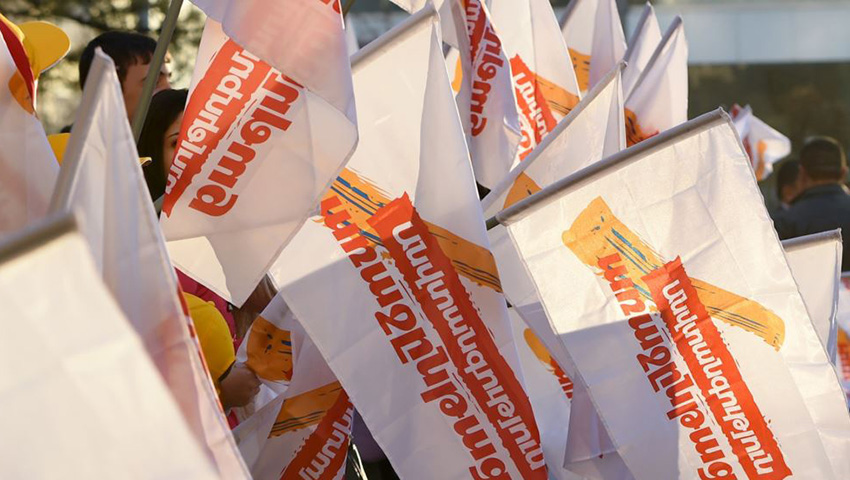The coming months will be crucial for Armenia and the Armenian people. The Republic of Armenia must decide which direction it will take in the new world order and that decision will have major implications not only on Armenia, but also on the Diaspora. Whether to orient with the East or the West has become a bit more complicated with the introduction of the North-South equation (the old Silk Road). The former US-Soviet conflict is being replaced by the US-China conflict. During this process, it is important for us to understand the positions of Russia, Turkey, Iran, and the European Union. We must also look at the 44-day Artsakh war from this vantage point and draw conclusions accordingly.
To reach the right conclusions we must refrain from being narrow-minded and instead adopt an impartial and critical approach in order to see the bigger picture. This is a difficult task, especially considering our distorted history. One of the greatest examples of this is the story of Vartanants, which is interpreted as a basic struggle between a hero and a traitor instead of a church-state conflict as well as a conflict between feudal houses over the issue of orientation.
A remarkable and instructive example for today is the issue of orientation of the First Republic of Armenia, which is regretfully buried in the mud of partisan politics. Putting party politics aside, it becomes clear in retrospect that at that time, instead of being carried away by the empty promises of the West, if we had seen Kemalist Turkey and Bolshevik Russia rising from the ruins of the Ottoman and Tsarist empires, we would not have lost to Georgia and Azerbaijan who became more vigilant and benefited from our demise. At that time our government, led by the ARF, miscalculated and we suffered. Similar to today a new world order was being formed, and Bismarckian “iron and blood” states were emerging and forcing their will. Territories were of great importance and the support of a strong immediate neighbor was a necessity.
The main foundations of the new world order being formed are information technology and economics. In both cases the driving force is the West (led by the United States), followed by China, but not so much Russia, which is in retreat. If at the end of World War II the powerful Soviet Union could not impose its will on Turkey, that fact should make us evaluate our current circumstances and find counterbalances rather than submit to the complete domination of Russia. Our national interests must be the basis of our orientation.
When we look at what Armenia went through over the past 30 years it becomes clear that Russia has always managed to take full control of Armenia and make it serve its own interests. There is nothing surprising as that is the game of the great powers. The misfortune is that there are people among us who, out of self-interest, become obedient tools to foreign powers. The handing over to Russia of Armenian enterprises of strategic value under the guise of “property for debt” immediately comes to mind (from communications to the nuclear power plant), the beheading of our statehood on October 27, the halving of the Iran-Armenia pipeline diameter, the prevention of the signing of Armenia-EU economic integration accord, the ineffectiveness of the CSTO and the association of its members with non-member Azerbaijan, to the detriment of member Armenia, etc.
Having all these in mind, will we be able to bring some balance to our foreign policy? The European Union, with an investment program of about $2 billion, wants to help Armenia achieve that balance. It should not be considered a coincidence that this aid comes on the heels of the 44-day war, given the Russian-Turkish rapprochement and the East-West Zangezur Corridor dispute. More than $700 million will be allocated to complete the Iran-Armenia-Georgia north-south highway, construction of which began in 2012 and was scheduled for completion in 2019, but barely 20 percent has been completed. The implementation of this highway will disrupt the plans of the Zangezur Corridor supporters, namely Turkey, Azerbaijan and Russia. About $100 million will be allocated for the development of Syunik, where an important section of this highway will pass. When we consider that about $1 billion will be allocated to the development of small and medium-sized enterprises, e-governance programs, and tech startups, it becomes clear that the overall program will be beneficial for the prosperity of the Armenian economy and its population, contribute to the spread of democracy and the strengthening of state sovereignty.
We started our article with the sentence “The coming months will be crucial for Armenia and the Armenians.” That crucial nature can have a positive or negative outcome: positive if the EU program is implemented with firm steps; negative if certain forces succeed in disrupting it. These certain forces are the “Armenia” Alliance and the “I Have Honor” Alliance, with their sponsors.
14 July 2021
P.S. Two days after the writing of our article the European Union increased the amount of the investment program to be provided to Armenia by an additional $1.2 billion. Yet the ARF Youth of Armenia organized a protest rally against Charles Michel the President of the European Council during his visit to Armenia, chanting “Shame on you”, “Armenia is not for sale”, conveniently forgetting the real sale of Armenia to Russia in the “property for debt” deal of $100 million.











